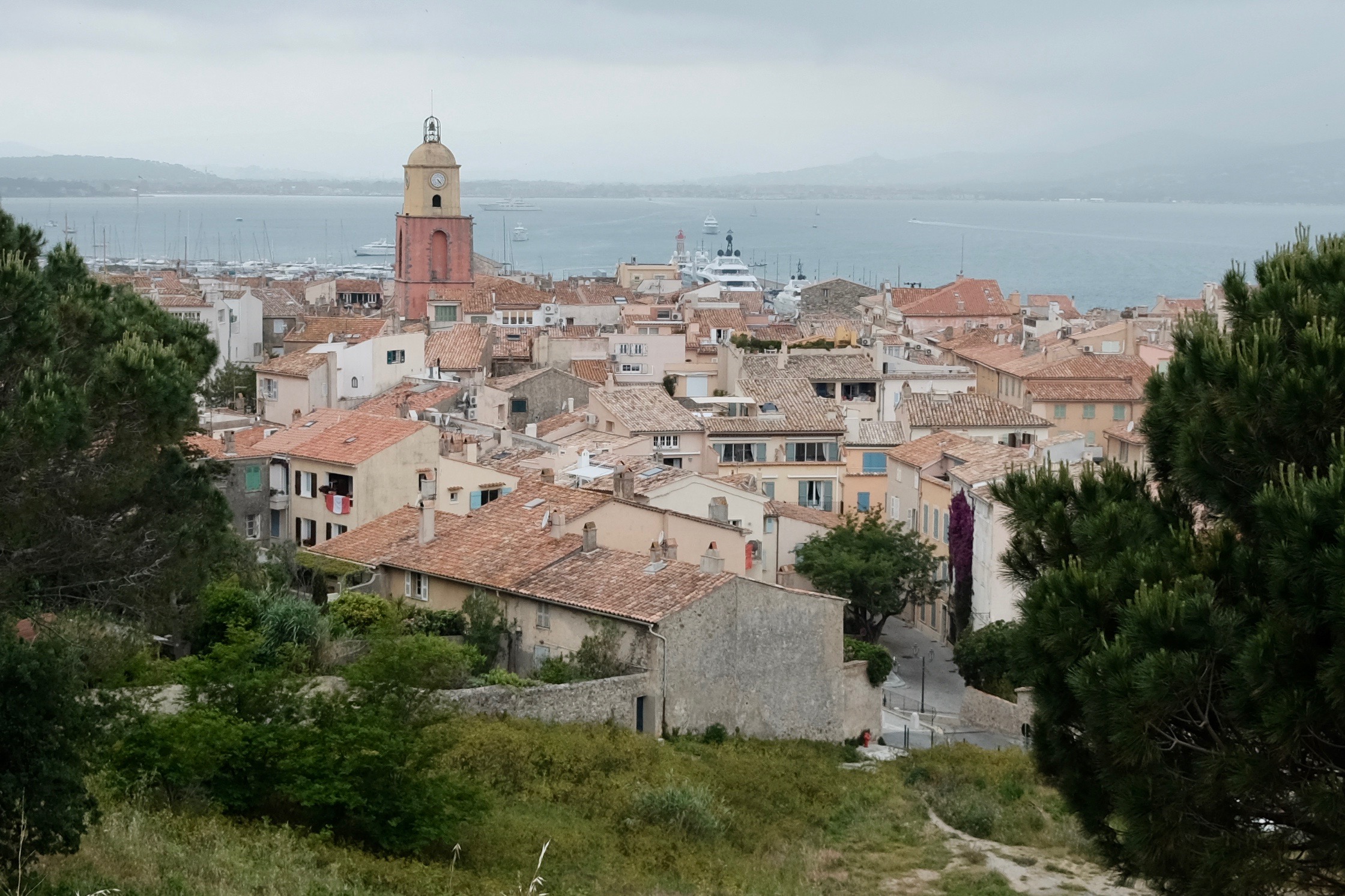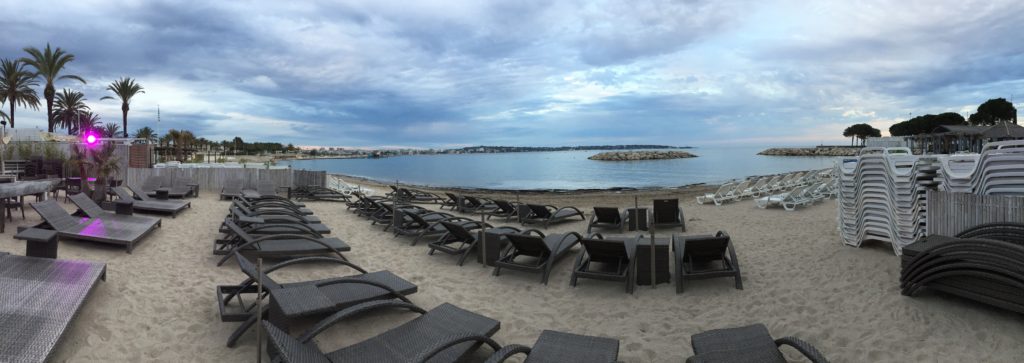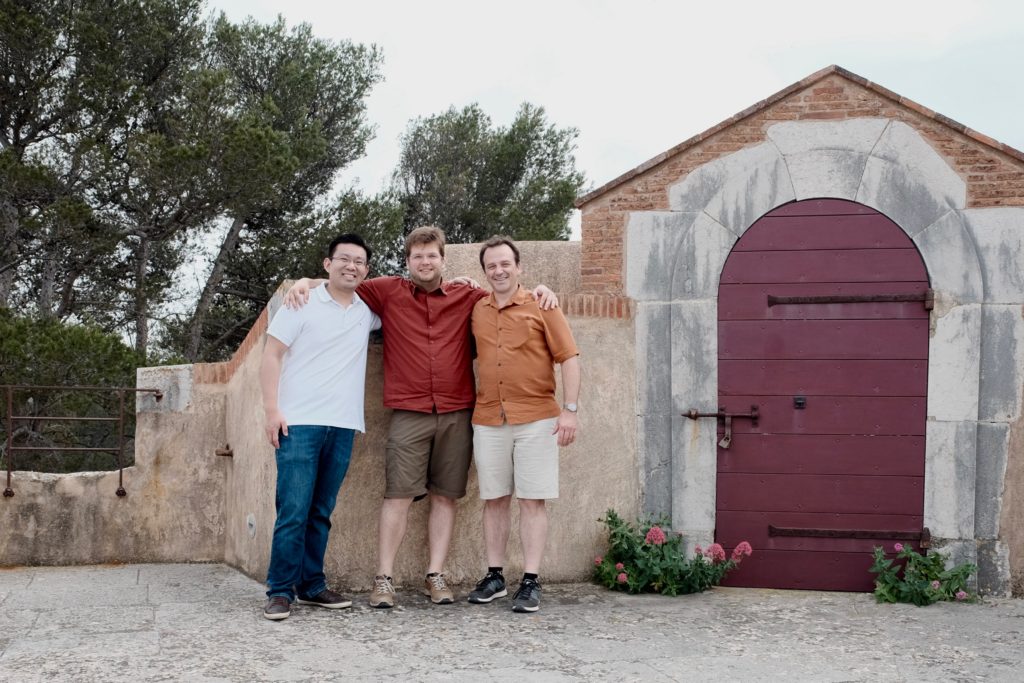I returned late Sunday night from a trip to the south of France, where I was privileged to speak about Microservices, OpenShift, and how to do it all on Node.js. The conference was RivieraDev/JUDCon: Riviera 2017 and took place in Sophia Antipolis, near Nice, Cannes, St. Tropez and other fabulous Mediterranean cities on the southeastern coast of France.

This was a two-day conference, sponsored in part by Red Hat. It was great to see so many Red Hatters there and connect face to face with colleagues from around the globe. The night before the conference, speakers were treated to drinks and a nice meal at a restaurant on the Mediterranean beach. The organizers were fabulous hosts, and it was a great opportunity to meet several people I would end up spending a lot of time with over the weekend. Here's the view from the restaurant deck.

The conference consisted of four tracks each day, one of which was the JUDCon track. It was kicked off with a remote dial in from Mark Little, representing Red Hat Middleware, welcoming the few hundred attendees. Quite a site to see Mark's head in triplicate, suspended on three big screens across the stage.
My talk was a 50-minute slot on the morning of the first day. I started by talking about microservices in general, and some of the challenges that architecture presents. Then followed a brief discussion of how OpenShift helps to overcome some of those issues. For the meat of the talk, I discussed how to run Node.js applications on OpenShift, covering a lot of material that I have worked on as a community member of the OpenShift effort, including:
- Building and deploying applications based on the built-in Node 4 "official" builder images.
- How to use your own Dockerfiles and ONBUILD commands to create containers that can run on OpenShift and Docker equally well.
- How to use bucharest-gold community s2i and ONBUILD images to customize the runtime images for your Node.js applications.
- How to import your own, or community ImageStreams into OpenShift so that the community images are available in the web UI.
I was concerned about too much live coding, since there is so much risk of problems biting you mid-talk, so there were a lot of screenshots in the slides. But often, I would switch over to a running Minishift 1.0 instance and demonstrate.
The slides for my talk are here: http://lanceball.com/riviera-dev-2017. I don't think the sessions were recorded, so you'll just have to imagine lots of witty repartees, brilliant insight, and engaging dialog as you skim through them. :)
I finished up with a brief demonstration of a modified version of the MSA Hello World demo that has been used in the past to demonstrate a polyglot MSA system. I used the JavaScript bonjour service pretty much as-is and made a hola service as a modified version of bonjour. I ran these on Minishift and quickly demonstrated scaling services up and down. Finally, I showed call chaining between the services, and how circuit breakers can be used to handle situations when a peer is down.
You can find the source for my slides and the two services here: https://github.com/lance/riviera-dev-2017.
Many of the talks were in French, and while I could occasionally have simple conversations with a waiter or bartender, I'm not fluent enough to fully grasp tech talks in the native tongue. But there were plenty that were in English. I caught a couple of Edson Yanaga's talks on OpenShift and Blue/Green deployments. Inspiring topics for possible presentations in the Node world this fall. It was fun to attend Heiko Braun's' WildFly Swarm talk and see some of my old Swagger stuff up on the screen. I attended a few other talks in the Red Hat track and overall I think we represented very well.
The highlight of the trip, however, was meeting and spending quality time with many, many Red Hatters from around the world. Sebi and Stéphane were excellent hosts; all the organizers were. I had a great time hanging out with Heiko, Gunnar, Mattias, Edson, and so many others. These opportunities to spend face-to-face time with friends and colleagues around the world are really invaluable. As remote workers, experiences like this are fundamental catalysts for better working relationships. Thanks to Red Hat for making that happen!

Head over to Red Hat OpenShift Container Platform for an overview.
